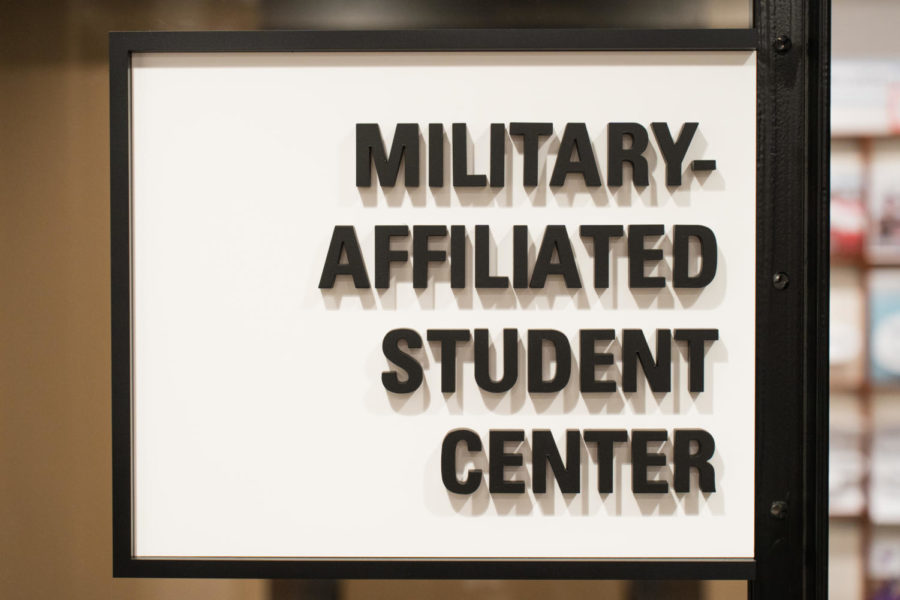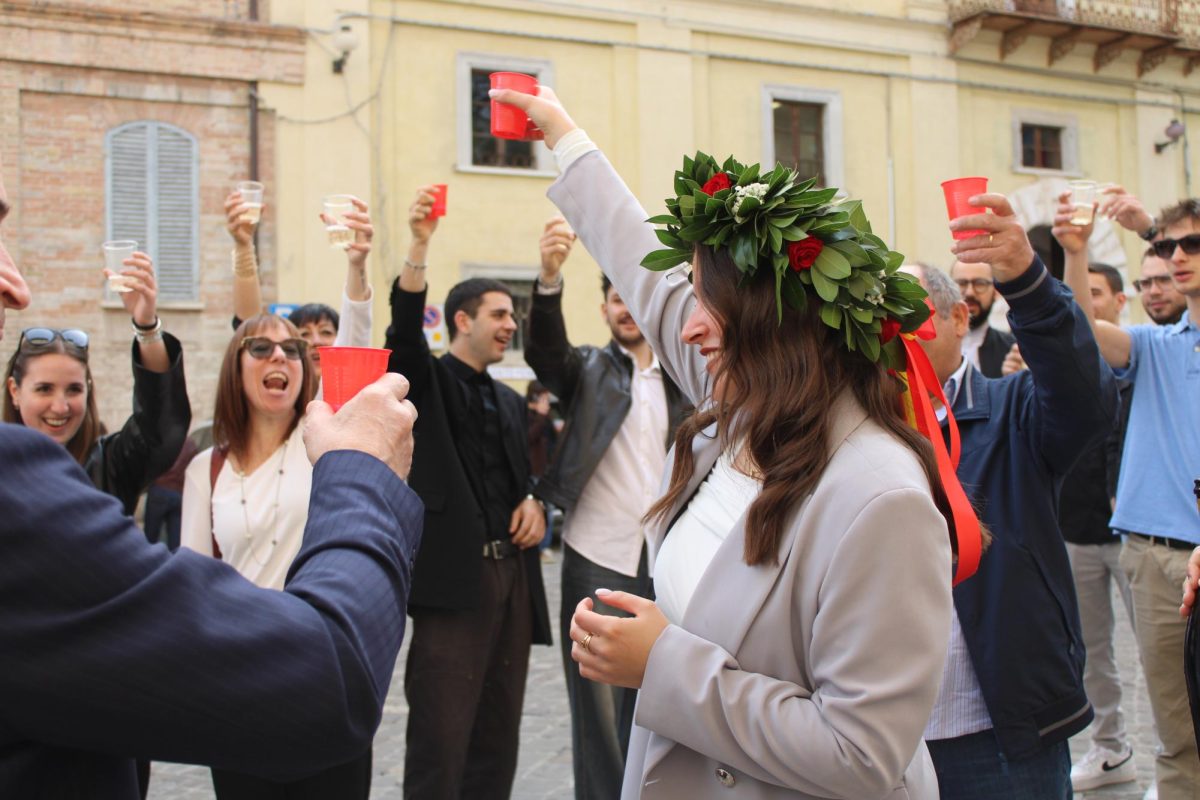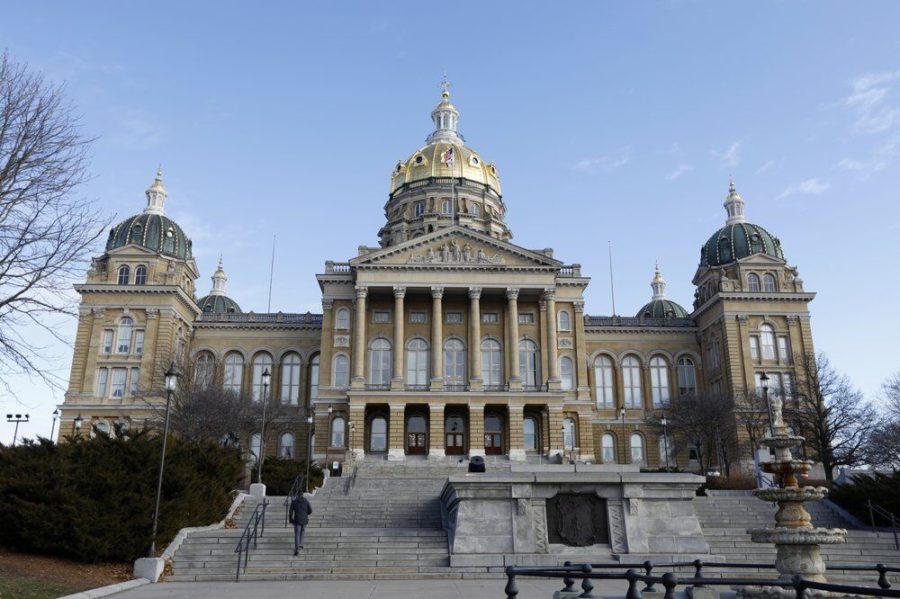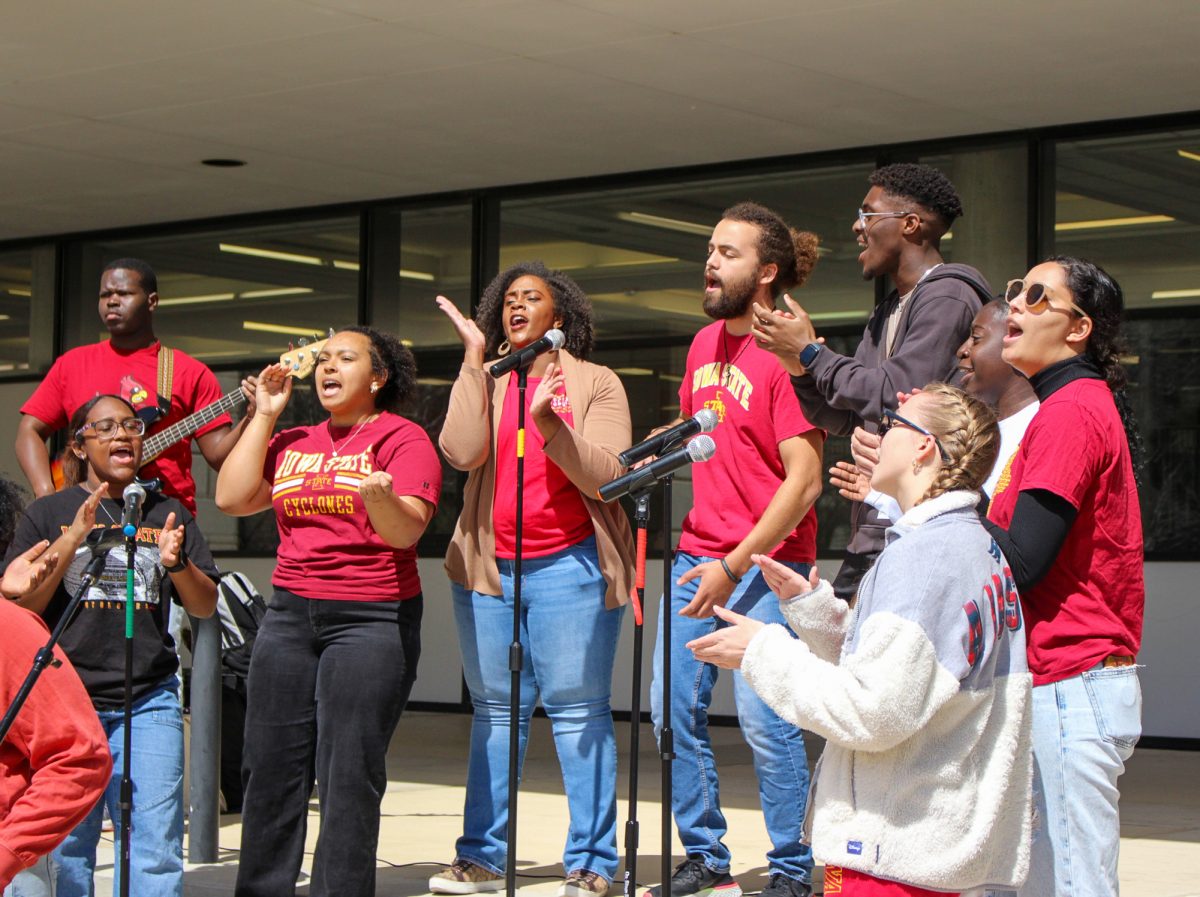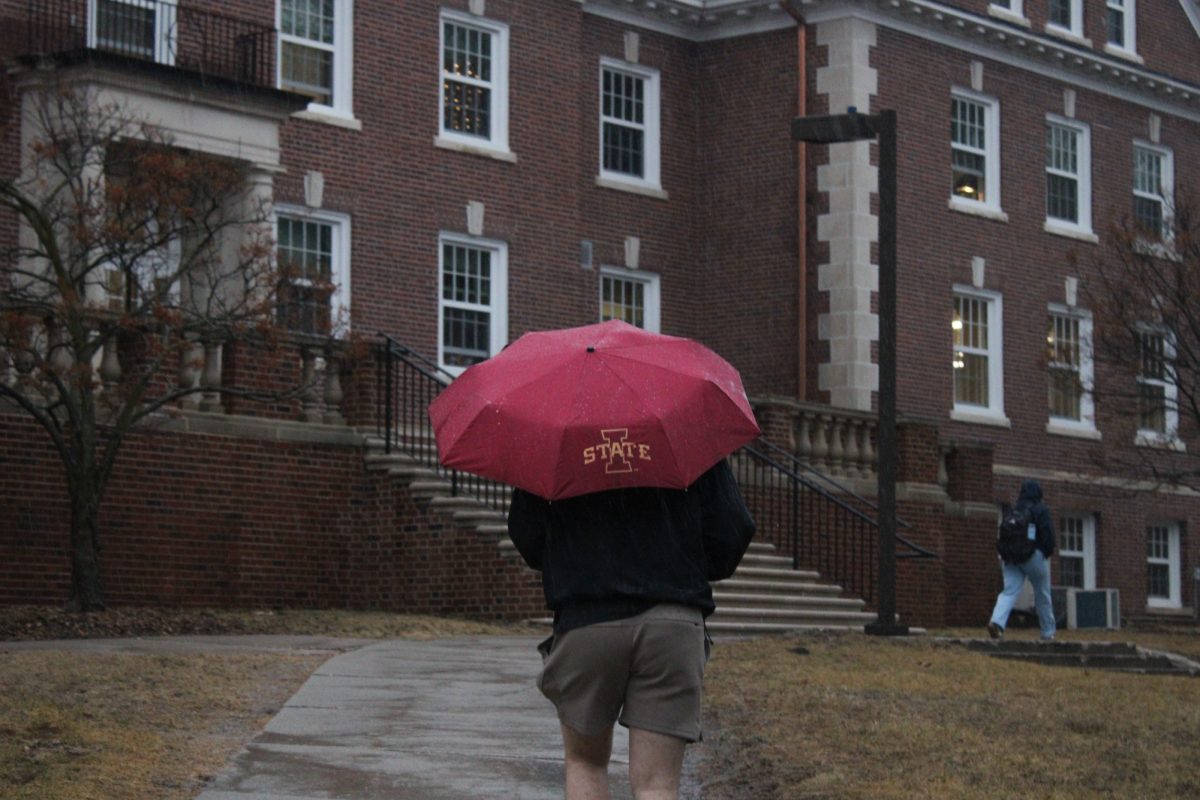Madison Lihs, a senior in history and a member of the Air National Guard, said she got back from military training right before her spring semester at Iowa State would begin in 2020.
Lihs said life as a student veteran is a little different than the average college student routine, with weekend drill training and two-week-long classes causing military-affiliated students to spend more time off campus.
The Military-Affiliated Student Center (MASC) provides academic support, transition assistance and advocacy for students and family of those who are active-duty service members, veterans, reservists, ROTC cadets and members of the National Guard.
The MASC gave an opportunity to find community over shared experiences, especially for student veterans who may have some difficulty making friends and getting integrated on campus, Lihs said.
“We’ve got veterans who have done their 20 years and are now just coming to school for the first time, and they’ve got kids and a family and they want to do something more after they’ve been in the military,” Lihs said. “There’s a lot of people who are like me who are in the National Guard. We’ve got ROTC students as well, so we try to cater to everybody.”
Rita Case, the director of the Military-Affiliated Student Center and a United States Navy and Navy Reserves veteran, stated she is passionate about working with and advocating for student veterans because she was a transfer student to a university when she first left the Navy.
“I took on the work of helping the university understand how it could better serve student veterans and non-traditional students,” Case stated. “I’ve been working on behalf of student veterans ever since. I know that the transition from the military to college can be confusing and difficult to navigate, and it brings me joy to help students feel at home at Iowa State.”
Case stated Iowa State has an excellent reputation for student success in the classroom, and she feels the MASC helps fill in any gaps.
“We offer a place to meet with other students with similar life experiences, guidance and resources for help with various VA claims and services, academic coaching, tutoring, career transition, etc.,” Case said.
Lihs said when she arrived at Iowa State, she wasn’t sure what she wanted to do or which direction to take, which led to her enrollment in a variety of classes. The free tutoring and study resources offered by the MASC helped Lihs feel comfortable in the classroom.
“There’s a lot of us who hadn’t been in a classroom setting in 20 years or something like that,” Lihs said. “It’s kind of difficult to get into the swing of things. For me coming back from my deployment, I was home for about three weeks, and then I started school again. It was very, very different going from a very strict, 12-hour work shift every day seven days a week to all of a sudden having all this free time on our hands. That’s something that the people at the MASC and the directors at the MASC really helped us with integrating back into that student life.”
Lihs is the president of Student Veterans of America, a student organization aiming to reintegrate student veterans who might be struggling or students who aren’t really sure if they want to come to college.
“[We’re] there to kind of be that little push to help get them back on track to where they need to be and give them the resources and help that they need and just honestly be familiar faces and friends on campus that they can make as well,” Lihs said.
Maj. Anthony Thacker, the assistant director of the Military-Affiliated Student Center, served as an instructor in the Army ROTC program at Iowa State, instructing sophomore cadets for four years. Thacker retired from the United States Army after 20 years of service in February.
“Whether that involves helping veterans find resources through the VA or simply providing a space to study and socialize, that’s what I try to do,” Thacker stated.
The MASC recently received the Gold ranking from the Military Friendly Schools survey, awarding high status for leading practices, outcomes and effective programs. Thacker stated he believes the biggest factor leading to this ranking is university staff that genuinely care about veterans and other Military-affiliated students.
“It’s not just the MASC. People like Ron Sykora, Leah Pearson and Michelle Becker in the Registrar’s office really go out of their way to help the students with getting their GI Bill benefits, the folks down in the ROTC departments assisting us with our various programs, as well as the overall administration being supportive of service members and veterans and not just paying lip service to them,” Thacker stated.
Thacker stated he also believes Iowa State has an ingrained culture of gratitude toward service, illustrated by Gold Star Hall in the Memorial Union.
“Outside of military colleges, I don’t know of any other university that features so prominently a place that honors the sacrifices of the men and women who have served this country [and] not only that but also has a team of researchers that determine if someone from ISU is deserving of the same honors,” Thacker stated.


